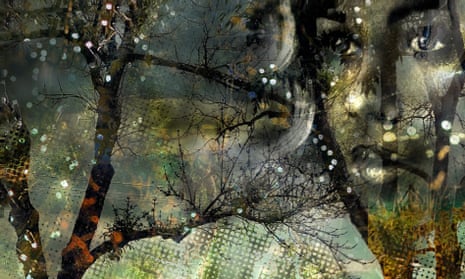A prize-nominated poet’s debut collection has been cancelled and her work removed from online publications after multiple writers accused her of plagiarising their work.
On Saturday, Ailey O’Toole, an American poet who was nominated for a Pushcart prize for the poem Gun Metal, was publicly accused by Rachel McKibbens of taking lines from her poem, three strikes, and using them in Gun Metal. McKibbens’ poem, which draws on her childhood trauma, reads: “Hell-spangled girl / spitting teeth into the sink, / I’d trace the broken / landscape of my body / & find God / within myself.” O’Toole’s Gun Metal reads: “Ramshackle / girl spitting teeth / in the sink. I trace the / foreign topography of / my body, find God / in my skin.”
McKibbens said she was contacted by O’Toole that day to inform her that she had “paraphrased a stanza” from three strikes and that, “over time, the origin of the stanza slipped my mind … I hope you can understand it was not my intention to pass your work off as my own and I am deeply ashamed of this mistake.”
McKibbens wrote on Twitter that she did not accept the apology, pointing to how in an interview with the Rumpus O’Toole had called these specific lines “the best representation” of her writing and had the lines tattooed on her arm.
“Who are we, if not our words? Who are we if we are not allowed to tell our own stories? I survived my own vanishing. I arrive in my art. That is where I map my forgiveness, my sorrow, my joys. Let it be mine. Don’t change a single word of it,” McKibbens wrote, also identifying similarities between O’Toole’s poem Coping Mechanisms and her own 2011 work, letter from my heart to my brain.
After McKibbens spoke out, other poets came forward with examples of their work appearing in O’Toole’s verse. Wanda Deglane alleged that O’Toole had “borrowed” lines from some of her poetry after Deglane had shown her one of her manuscripts, while Christina Stoddard, Brenna Twohy and Hieu Minh Nguyen all identified appropriated lines, including one in Twohy’s poem January that appears in Gun Metal: “Look into my mouth. this endless angry thing. you have no idea how much I can consume.”
In a statement to the Guardian, O’Toole said: “As a writer myself, I understand the importance of the written word, and the creativity and ownership that goes into both poetry and prose. That is why I sent an apology note to Rachel McKibbens, to let her know how truly sorry I am for having borrowed her lines. It was a mistake, and I have learned a lot from having made it.” She did not respond to questions about the other allegations.
Several literary magazines, including the Rising Phoenix Review, Barren, Peculiars Magazine and Bonnie’s Crew, announced they had taken down O’Toole’s work from their sites, with Barren making a statement in support of Deglane: “Although the author credited Wanda as inspiration, evidence of serial plagiarism is clear. We stand united with fellow lit mags and reject all fraud.”
O’Toole’s publisher, Rhythm and Bones Press, announced that it had cancelled her first collection, Grief, and What Comes After, when they were contacted with the allegations. On Tuesday, Vulture revealed the source was a former colleague of O’Toole’s, who discovered the similarities between McKibbens’ and O’Toole’s poetry after searching for the lines tattooed on O’Toole’s arm.
In a statement, Rhythm and Bones Press said it had “taken all necessary steps to rectify the recent disturbing developments. Please know we do NOT accept or tolerate plagiarism. We are hurt, we feel the pain & anger of those who have had work stolen.”
We are still processing the recent events but please know we have taken all necessary steps to rectify the recent disturbing developments. Please know we do NOT accept or tolerate plagiarism. We are hurt, we feel the pain & anger of those who have had work stolen.
— Rhythm & Bones Press (@RhythmBonesLit) December 1, 2018
Bill Henderson, president of the Pushcart prizes for work published by small presses, told the Guardian: “We will of course not reprint any poem that is plagiarised. We receive over 8,000 nominations a year and are very careful to check each of our 70-plus winners before going to press in May. This will be our practice in this alleged case … For 43 years, the Pushcart prize has been plagiarism-free, and a wonderful recognition for all our poets and the small presses that publish them.”
As the poetry world reeled from its latest plagiarism scandal, readers urged each other to go out and buy the work of the affected poets. McKibbens’scollection blud, which includes the poem three strikes, is being reprinted after selling out on Amazon.com, where it is currently the bestselling Hispanic American poetry collection.
